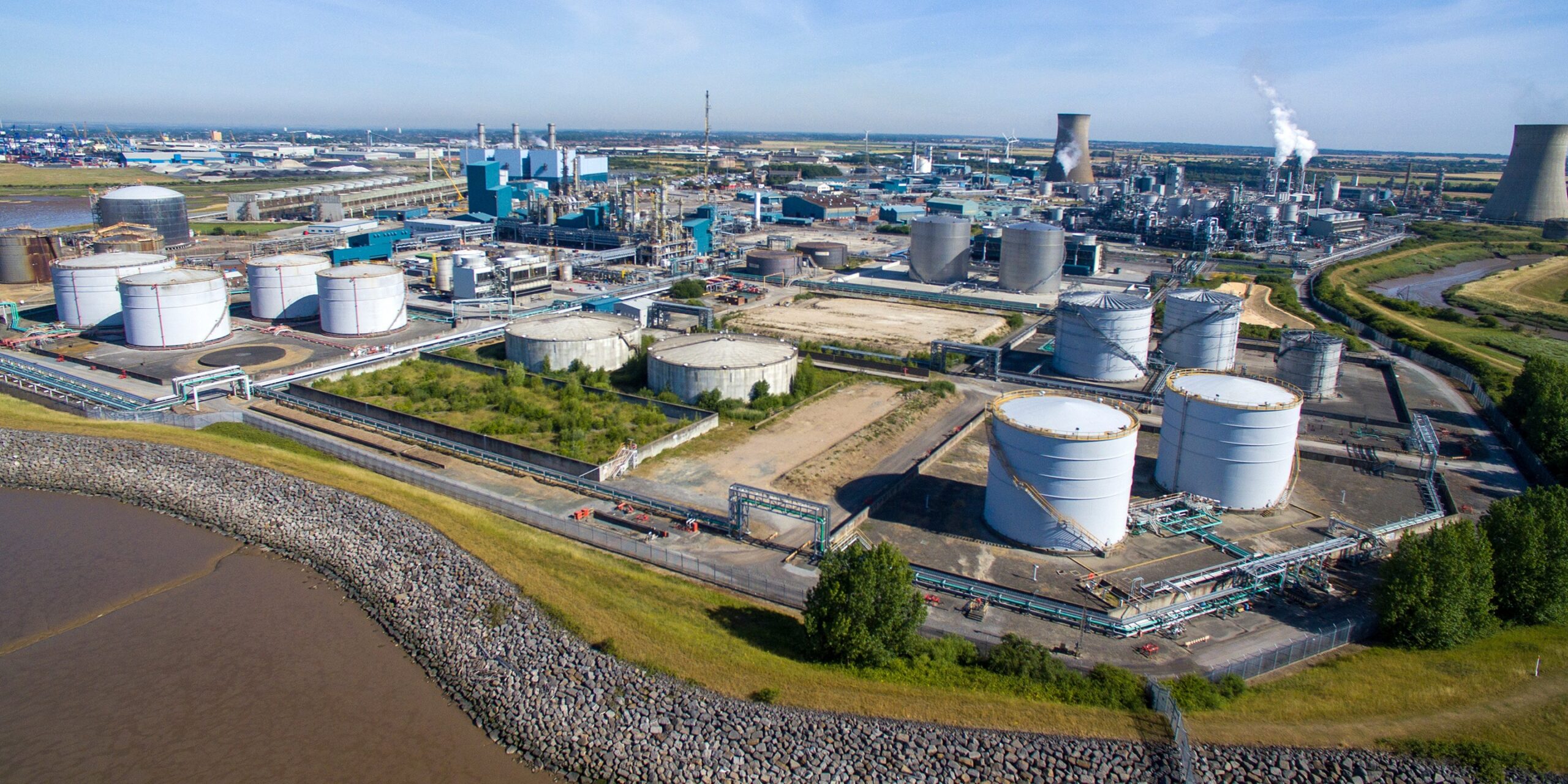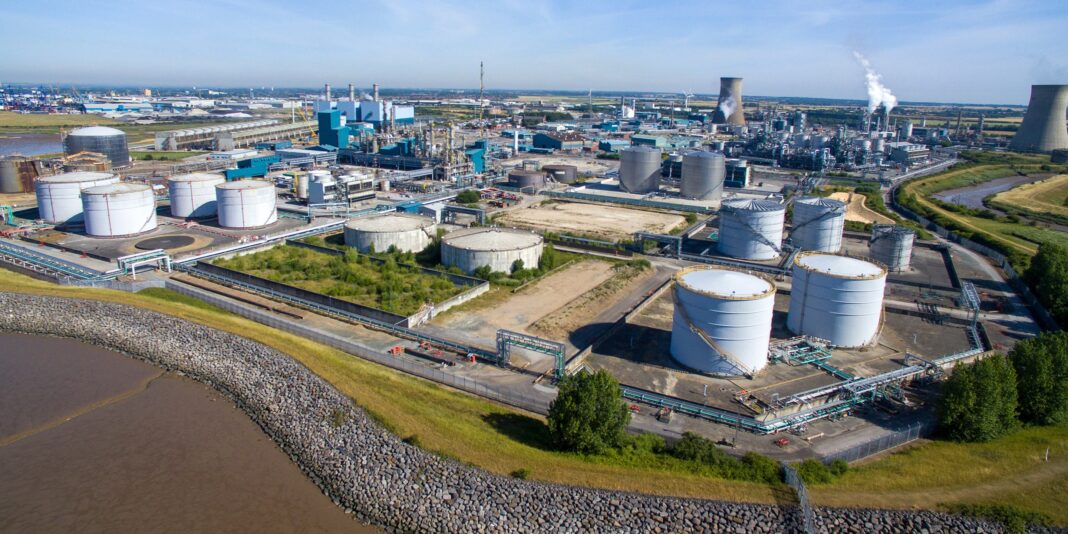## Fueling the Future: Honeywell’s Green Tech Takes Center Stage in First Commercial Hydrogen Supply Chain
Imagine a world powered by clean, sustainable energy. A world where industry giants like Honeywell are spearheading the transition away from fossil fuels, ushering in a new era of green technology. This isn’t science fiction; it’s the reality unfolding before us. Honeywell’s groundbreaking technology has just been selected for the world’s first commercial hydrogen supply chain, a monumental step towards a cleaner, more sustainable future.

Honeywell’s LOHC Solution: A Game Changer for Hydrogen Distribution
Honeywell’s Liquid Organic Hydrogen Carrier (LOHC) Solution is poised to revolutionize the transportation and distribution of hydrogen, a clean and sustainable energy source. This innovative technology addresses two major hurdles facing widespread hydrogen adoption: safe long-distance storage and efficient transportation. By converting hydrogen gas into a liquid organic compound, Honeywell’s LOHC Solution enables the safe and secure transport of hydrogen via existing infrastructure, such as pipelines and tankers, significantly reducing costs and logistical complexities.
The core of Honeywell’s LOHC Solution lies in the use of methylcyclohexane (MCH) as the hydrogen carrier. The process begins with the hydrogenation of toluene, a readily available and inexpensive chemical, to produce MCH. This liquid form of stored hydrogen is then transported to its destination where it is dehydrogenated back into hydrogen gas using Honeywell’s proprietary MCH dehydrogenation process. The remaining toluene byproduct is recycled, creating a closed-loop system that minimizes waste and environmental impact.
This approach offers several compelling advantages over traditional hydrogen storage and transportation methods:
- Safety: MCH is a stable and non-flammable liquid, making it significantly safer to transport than gaseous hydrogen. This reduces the risk of accidents and incidents during transportation.
- Efficiency: MCH can be stored and transported at ambient temperatures and pressures, eliminating the need for expensive and complex cryogenic storage systems. This simplifies logistics and reduces operational costs.
- Infrastructure Compatibility: Existing petroleum transportation infrastructure can be readily adapted for MCH transport, minimizing the need for costly new infrastructure investments.
- Reduced Environmental Impact: Recycling toluene minimizes the need for virgin material production, reducing greenhouse gas emissions and protecting natural resources.
- Cost Savings: Utilizing recycled toluene reduces reliance on expensive new materials, leading to significant cost savings for hydrogen producers and consumers.
- Enhanced Circular Economy: The closed-loop nature of the system aligns with the principles of a circular economy, minimizing waste and maximizing resource utilization.
Beyond Transportation: The Benefits of Recycling and Circularity
Honeywell’s LOHC Solution goes beyond simply addressing storage and transportation challenges. By incorporating the recycling of toluene, the process creates a closed-loop system that promotes environmental sustainability and economic efficiency.
The recycling of toluene offers several key benefits:
Analysis and Implications: Shaping the Future of Energy
Commercial Viability: A Turning Point for Hydrogen Adoption
The Honeywell-ENEOS partnership marks a significant milestone in the commercialization of hydrogen as a viable energy source. By demonstrating the feasibility of a large-scale hydrogen supply chain using LOHC technology, this project has the potential to unlock widespread adoption of hydrogen across various sectors, including transportation, industrial processes, and power generation.
The cost-effectiveness of Honeywell’s LOHC Solution is crucial for driving hydrogen adoption. By leveraging existing infrastructure and minimizing storage and transportation costs, the technology can make hydrogen a more competitive alternative to fossil fuels. This will be particularly important in meeting the growing global demand for clean energy and reducing greenhouse gas emissions.
Global Collaboration: A Model for International Energy Partnerships
The Honeywell-ENEOS collaboration exemplifies the importance of international partnerships in advancing clean energy technologies. By combining Honeywell’s expertise in LOHC technology with ENEOS’s strengths in refining and energy distribution, the two companies have created a powerful synergy that accelerates the development and deployment of a sustainable hydrogen economy.
This partnership serves as a model for similar collaborations worldwide. As countries seek to transition to cleaner energy sources, partnerships between leading technology providers and energy companies are essential for overcoming technical challenges, sharing knowledge, and fostering innovation.
The Road Ahead: Challenges and Opportunities
While the Honeywell-ENEOS project represents a significant step forward, several challenges remain in the widespread adoption of hydrogen as a primary energy source. These include:
- Scaling Up Production: Increasing the production capacity of hydrogen to meet global energy demand requires significant investment in infrastructure and technology.
- Regulatory Frameworks: Clear and consistent regulatory frameworks are needed to ensure the safe and efficient transportation, storage, and use of hydrogen.
- Consumer Adoption: Raising public awareness and understanding of hydrogen as a clean and reliable energy source is crucial for driving consumer demand.
Despite these challenges, the future of hydrogen energy is bright. Continued investment in research and development, coupled with strategic partnerships and supportive policies, will pave the way for a hydrogen-powered world.
Conclusion
Honeywell’s selection for the first commercial hydrogen supply chain via MCH marks a pivotal moment in the transition towards a cleaner, more sustainable energy future. The article has explored how Honeywell’s cutting-edge technology, specifically its UOP hydrogen production and purification solutions, will be instrumental in enabling the efficient and reliable transport of hydrogen from production sites to end users. This collaboration with MCH signifies not only a commitment to innovation but also a recognition of the crucial role hydrogen will play in decarbonizing various sectors, from transportation to power generation.
The implications of this development are far-reaching. It signals a growing industry-wide embrace of hydrogen as a viable and scalable alternative to fossil fuels. This project paves the way for the establishment of a robust hydrogen economy, fostering competition and driving down costs. We can anticipate further investment in hydrogen infrastructure, research, and development, leading to a faster deployment of this clean energy solution. The future holds immense potential for hydrogen to transform our energy landscape, and this collaboration represents a significant step towards realizing that potential. As we move forward, it will be crucial to continue supporting initiatives that promote the responsible and sustainable development of this transformative technology.
The first commercial hydrogen supply chain is not just a logistical feat; it’s a beacon of hope for a cleaner, more sustainable future. Let’s seize this opportunity to build a brighter tomorrow, powered by the limitless potential of hydrogen.
